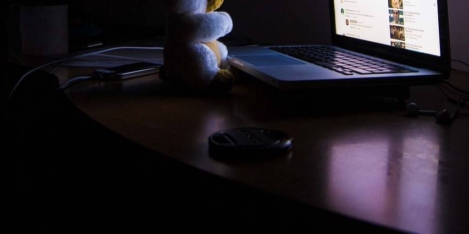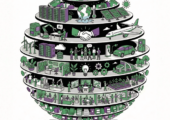To provide the best experiences, we use technologies like cookies to store and/or access device information. Consenting to these technologies will allow us to process data such as browsing behaviour or unique IDs on this site. Not consenting or withdrawing consent, may adversely affect certain features and functions.
The technical storage or access is strictly necessary for the legitimate purpose of enabling the use of a specific service explicitly requested by the subscriber or user, or for the sole purpose of carrying out the transmission of a communication over an electronic communications network.
The technical storage or access is necessary for the legitimate purpose of storing preferences that are not requested by the subscriber or user.
The technical storage or access that is used exclusively for statistical purposes.
The technical storage or access that is used exclusively for anonymous statistical purposes. Without a subpoena, voluntary compliance on the part of your Internet Service Provider, or additional records from a third party, information stored or retrieved for this purpose alone cannot usually be used to identify you.
The technical storage or access is required to create user profiles to send advertising, or to track the user on a website or across several websites for similar marketing purposes.
 Debt, separation and bullying are the personal issues of most concern to employers when it comes to employee mental health, according to a report from Aon. It polled employers online and during an Aon seminar called the Contemporary Drivers of Mental Health, in which Paul Farmer, CEO of Mind and co-author of a government report, ‘Thriving at Work, a review of mental health and employers’ presented his findings.
Debt, separation and bullying are the personal issues of most concern to employers when it comes to employee mental health, according to a report from Aon. It polled employers online and during an Aon seminar called the Contemporary Drivers of Mental Health, in which Paul Farmer, CEO of Mind and co-author of a government report, ‘Thriving at Work, a review of mental health and employers’ presented his findings.






 Over half of home workers say they appreciate the benefits that home working offers but nearly a quarter complain of loneliness too, a new survey from BHSF claims. When asked how working from home makes them feel, the top three responses were: free (50 percent), in control (47 percent) and calm (46 percent). However, a significant number of those surveyed chose more negative words to describe their feelings. Just over a quarter (26 percent) said that working from home made them feel remote, 24 percent felt isolated and 21 percent lonely.
Over half of home workers say they appreciate the benefits that home working offers but nearly a quarter complain of loneliness too, a new survey from BHSF claims. When asked how working from home makes them feel, the top three responses were: free (50 percent), in control (47 percent) and calm (46 percent). However, a significant number of those surveyed chose more negative words to describe their feelings. Just over a quarter (26 percent) said that working from home made them feel remote, 24 percent felt isolated and 21 percent lonely. 























March 5, 2019
Designing a better workforce: how workplace design can impact wellbeing
by Mary Lawrence • Comment, Wellbeing, Workplace design
(more…)